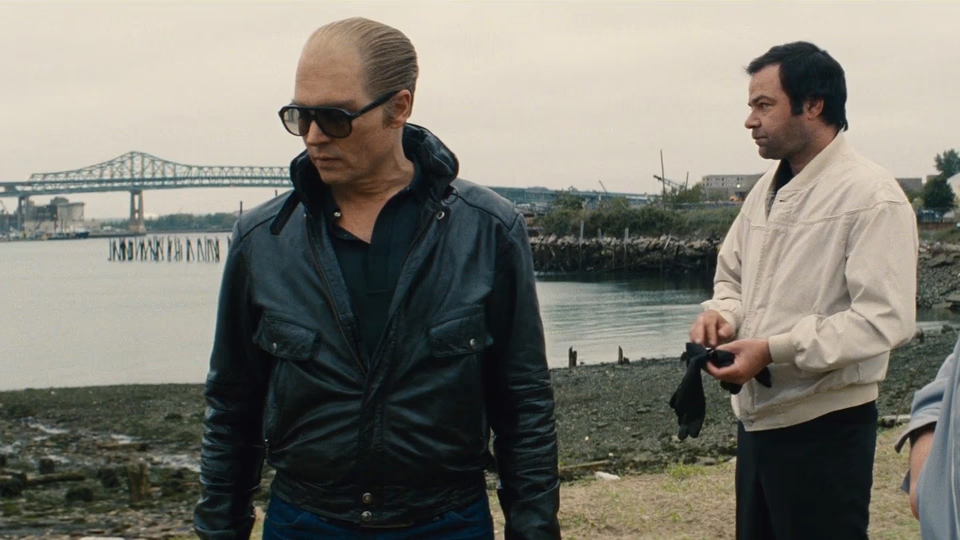Black Mass

Based on a true story, Black Mass sees Johnny Depp made up as a balding and paunchy James “Whitey” Bulger. The film chronicles Bulger’s ascent from small-time hood to South Boston crime-lord. A journey made possible by the FBI.
Early in the film, the Feds offer Bulger a sweet deal. In exchange for information on the Italian mob in North Boston, the FBI leave Bulger’s crew alone. Even better, they eliminate the competition. Best of all, Bulger’s FBI handler idolizes him.
The deal’s lone condition is that Bulger not kill anyone.
But of course, Bulger kills people. He executes one of his lackeys. His gang somehow gets involved in professional jai alai and Bulger orders the commissioner killed. He strangles a young girl who may have talked to the cops.
This last murder was where the film lost me. It occurs late in the film. The script introduces the girl only for Bulger to kill her five minutes later. The abrupt tonal shift to slasher horror feels cheap and neither advances the plot nor adds to Bulger’s characterization.
Benedict Cumberbatch plays Bulger’s younger brother, a state senator. Cumberbatch’s Boston accent jars, but he convinces as Depp’s brother. Both men look too slight for their parts, but they could pass for family.
The film invites comparisons with Scorsese’s Goodfellas and The Departed, but these comparisons underscore Black Mass’s weakness: Bulger isn’t a compelling character.
We see Bulger climb the criminal ladder, but have no idea how he spends a typical day. He amasses a fortune but, aside from a pair of cowboy boots, never spends it. He suffers what we’re told are life-changing tragedies, yet remains unfazed.
Depp tries as Bulger, but can’t overcome the shallow characterization. He can’t disappear into the character because there is no character. Just makeup and an accent.
With no psychological insight, Black Mass keeps us at arm’s length. We learn much of Whitey Bulger’s life, yet he remains a stranger.